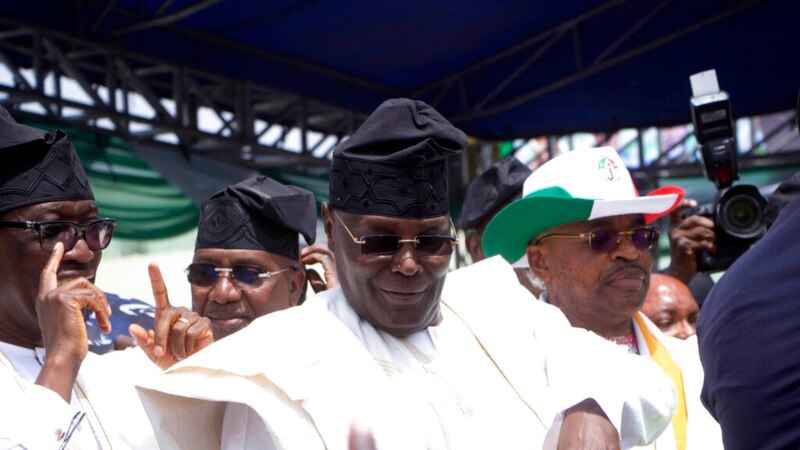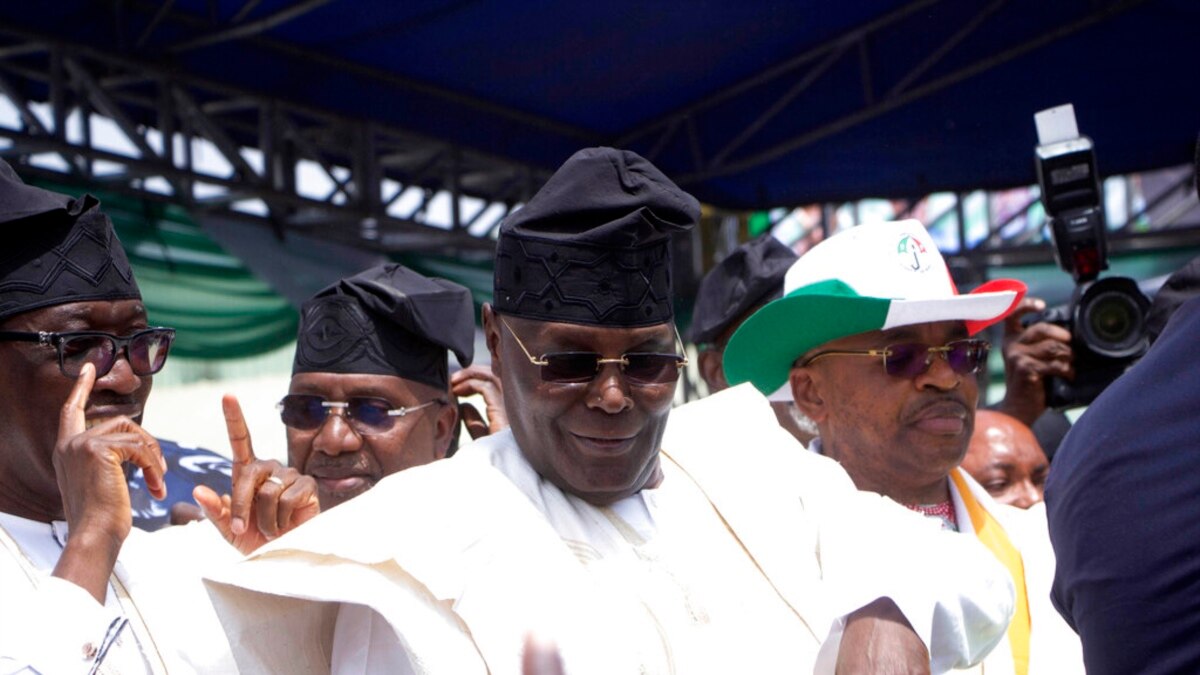This website uses cookies so that we can provide you with the best user experience possible. Cookie information is stored in your browser and performs functions such as recognising you when you return to our website and helping our team to understand which sections of the website you find most interesting and useful.


The front-runners in Nigeria's presidential race hit the campaign trail Saturday in a major push to persuade voters a week before the polls.
More than 90 million people are registered to vote in Nigeria, where President Muhammadu Buhari is stepping down after his two terms allowed by the constitution.
From the top of an open-air double-decker bus, Bola Tinubu, the candidate of the ruling party, All Progressives Congress, paraded through the streets of Maiduguri in northeast Borno state.
Tinubu was expected to stage a final rally in Lagos on Tuesday.
In nearby Adamawa state, the main opposition's candidate Atiku Abubakar of the People’s Democratic Party also made an entrance in the city of Yola on a double-decker bus.
Thousands of people attended both rallies, waving flags and shouting party slogans while loudspeakers blasted music.
Outsider candidate Peter Obi was not seen on the campaign trail but took to social media to call on his supporters, "the Obidients," to rally in several cities across the country.
In the capital, Abuja, several hundred Obi supporters marched from the center to the city gate, chanting and blowing vuvuzelas.
Campaigning is taking place as the nation faces widespread insecurity and tensions over a currency crisis.
On Saturday morning, gunmen attacked a police station in the Ogidi area of southeastern Anambra state.
"The hoodlums started shooting sporadically on approaching the area command and threw improvised explosive devices and petrol bombs, gaining entrance (into the station)," police spokesman Ikenga Tochukwu said in a statement.
"Three police operatives paid the supreme price," Tochukwu added.
Unrest in the southeast is just one of the challenges facing security forces, who are also fighting a 14-year jihadi insurgency in the northeast and kidnapping gangs in the northwest.
Nigerians have been struggling with a shortage of cash since the central bank introduced newly designed notes in December and banned old ones.
But in its effort to promote cashless payments and reduce the volume of money outside the banking system, the central bank printed a much smaller number of notes than were previously in circulation.
The lack of cash has triggered protests in major cities this week, with customers attacking banks and barricading roads just days before elections.
Tensions have also emerged inside the ruling APC party, with accusations that the cash crisis could frustrate Tinubu's election bid.



 Africana55 Radio
Africana55 Radio 
